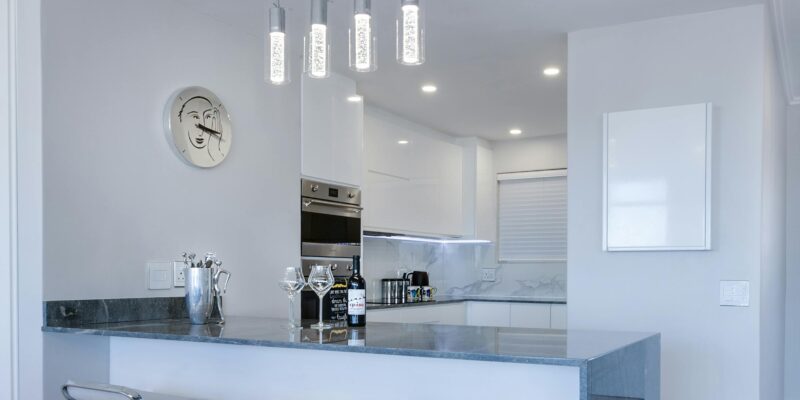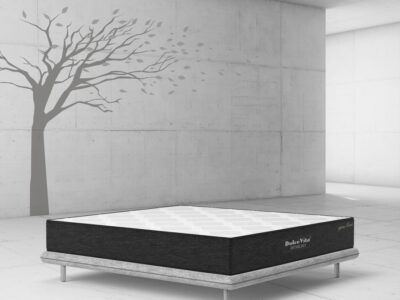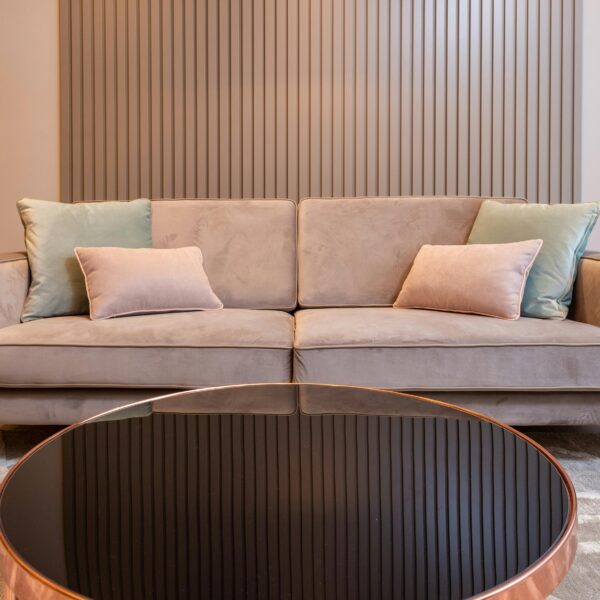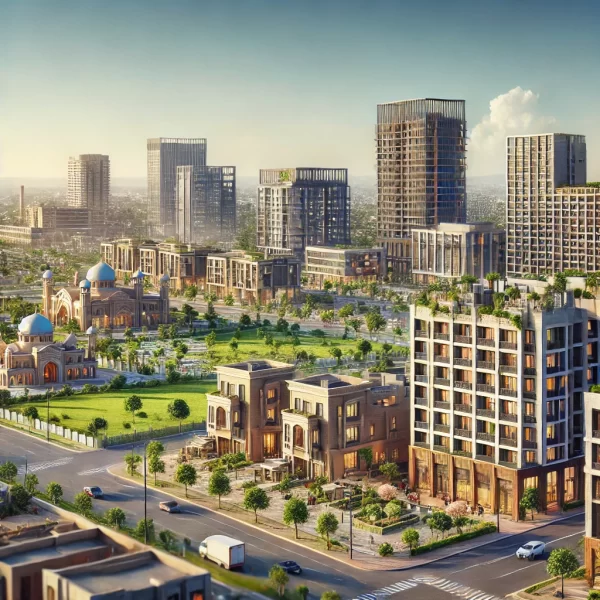
Different Types of Countertops: A Comprehensive Guide
Choosing the right countertop is one of the most important decisions when designing or remodeling a kitchen. Countertops serve as both a functional workspace and a central design element that can influence your kitchen’s overall look and feel. With so many different types of countertops available, it can be not easy to decide which one is best for your needs.
In this guide, we’ll explore the most popular types of countertops, outlining their key features, pros and cons, and how they can fit into your kitchen design.
1. Granite Countertops
Granite is one of the most popular types of countertops thanks to its natural beauty, durability, and variety of color options. Each granite slab is unique, offering a wide range of patterns and hues to choose from.
Pros:
- Extremely durable and resistant to heat, scratches, and stains (when sealed)
- Unique, natural patterns that add a touch of luxury
- Adds value to your home
Cons:
- Requires periodic sealing to maintain stain resistance
- Can be expensive
- Heavy, requiring professional installation
Best For: Homeowners looking for a premium, high-end countertop that is both beautiful and durable.
2. Quartz Countertops
Quartz countertops are engineered from natural quartz and resin, making them one of the most durable types of countertops available. Unlike natural stone, quartz countertops are non-porous, which makes them highly resistant to stains and bacteria.
Pros:
- Non-porous surface, resistant to stains and bacteria
- Available in a wide variety of colors and designs
- Requires no sealing or ongoing maintenance
- Extremely durable and long-lasting
Cons:
- Can be damaged by excessive heat
- Typically more expensive than other countertop options
- Less natural in appearance compared to granite or marble
Best For: Those who want a low-maintenance, durable countertop with a consistent appearance.
3. Marble Countertops
Known for its elegant, luxurious look, marble is a classic choice among different types of countertops. Its natural veining and smooth surface make it a favorite for high-end kitchen designs, though it requires more care than other options.
Pros:
- Timeless and elegant appearance
- Naturally cool surface, ideal for baking and pastry work
- Each slab is unique, offering one-of-a-kind veining
Cons:
- Prone to scratching, staining, and etching (especially from acidic substances)
- Requires regular sealing and maintenance
- Expensive
Best For: Upscale kitchens where aesthetic appeal is a priority and homeowners are willing to invest in maintenance.
4. Laminate Countertops
Laminate countertops are one of the most affordable types of countertops, making them a popular choice for budget-conscious homeowners. They are made by bonding layers of plastic laminate over particleboard, and they come in a wide variety of colors and designs.
Pros:
- Affordable and budget-friendly
- Available in many colors, patterns, and textures (including styles that mimic natural stone)
- Lightweight and easy to install
Cons:
- Less durable than other countertop materials
- Prone to scratches, chips, and burns
- Can appear less high-end compared to natural stone or quartz
Best For: Budget-conscious homeowners or rental properties where cost is a primary consideration.
5. Butcher Block Countertops
Butcher block countertops, made from thick strips of wood, are a warm and rustic addition to any kitchen. They bring a natural feel to the space and are ideal for homeowners who prefer a more traditional or farmhouse-style kitchen.
Pros:
- Warm, natural appearance
- Can be sanded and refinished to remove scratches or stains
- Ideal for food preparation, especially chopping and cutting
Cons:
- Requires regular maintenance (oiling and sealing)
- Susceptible to water damage, stains, and scratches
- Can harbor bacteria if not properly maintained
Best For: Kitchens with a rustic or traditional style, or for those who prefer a natural, warm aesthetic.
6. Concrete Countertops
Concrete countertops are a bold, contemporary choice among different types of countertops. They can be fully customized in terms of color, texture, and shape, making them a popular choice for modern and industrial-style kitchens.
Pros:
- Fully customizable in terms of color, shape, and finish
- Durable and strong (when properly sealed)
- Adds an industrial, modern look to the kitchen
Cons:
- Can crack over time if not reinforced properly
- Requires regular sealing to prevent stains and water damage
- Heavy and may require custom support
Best For: Custom kitchen designs with a contemporary or industrial aesthetic.
7. Stainless Steel Countertops
Stainless steel countertops are a popular choice in commercial kitchens due to their durability, heat resistance, and easy maintenance. They have a sleek, modern look that works well in industrial or minimalist kitchen designs.
Pros:
- Extremely durable, heat-resistant, and easy to clean
- Resistant to stains and bacteria
- Offers a sleek, modern look
Cons:
- Can show fingerprints and scratches easily
- Can be noisy
- Cold, industrial appearance may not suit every kitchen
Best For: Modern, industrial kitchens or homeowners who want a professional, restaurant-style workspace.
8. Solid Surface Countertops
Solid surface countertops, such as Corian, are made from a blend of acrylic and natural materials, offering a seamless and uniform look. These types of countertops are available in a wide range of colors and patterns, making them a versatile choice for any kitchen style.
Pros:
- Seamless design with no visible joints
- Non-porous, making it resistant to stains and bacteria
- Scratches can be easily sanded out
- Available in many colors and patterns
Cons:
- Less heat-resistant than natural stone
- Can scratch under heavy use
- Not as durable as granite or quartz
Best For: Homeowners looking for a versatile, low-maintenance countertop with a sleek and seamless appearance.
Conclusion: Finding the Best Countertop for Your Kitchen
With so many different types of countertops to choose from, it’s important to consider both style and functionality. Whether you’re drawn to the luxurious feel of marble, the durability of quartz, or the budget-friendly appeal of laminate, there’s a countertop material to suit every kitchen design and budget. By weighing the pros and cons of each material, you can find the perfect countertop that not only enhances your kitchen’s aesthetic but also meets your practical needs.
FAQs
- What are the most durable types of countertops?
Quartz and granite are among the most durable types of countertops, both offering excellent resistance to heat, stains, and scratches. - What countertops require the least maintenance?
Quartz countertops are a low-maintenance option, as they don’t require sealing and are highly resistant to stains and bacteria. - Are laminate countertops a good option for a budget-friendly kitchen?
Yes, laminate countertops are one of the most affordable types of countertops and offer a wide variety of designs, including ones that mimic natural stone. - How often do granite countertops need to be sealed?
Granite countertops should be sealed once a year to maintain their stain resistance and keep them looking fresh. - Can butcher block countertops be used for food preparation?
Yes, butcher block countertops are ideal for chopping and food preparation, though they require regular maintenance to prevent damage and bacteria buildup.










